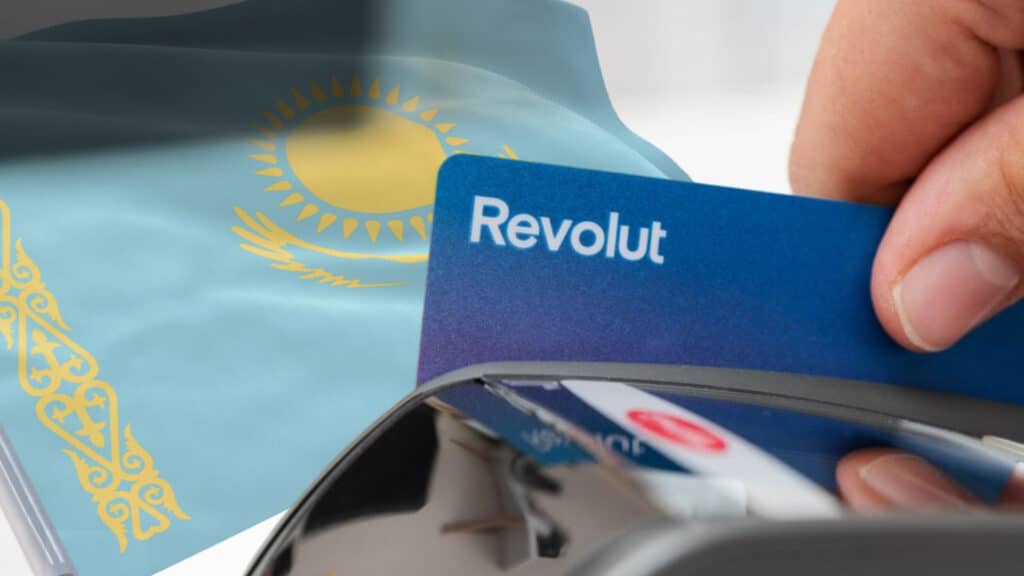British Revolut downsizes its business in Kazakhstan

Revolut, a British fintech startup founded by Nik Storonsky and Vlad Yatsenko, has decided to stop providing most of its services in Kazakhstan starting from July 20, 2024. This decision will affect Revolut Lite, the only product available in Kazakhstan.
«This wasn’t an easy decision to make and we want to thank you for your support and loyalty as a customer. We’ve made a strategic decision to focus on offering our full suite of services when launching a product in new markets. So, when we’re back, expect even more of what Revolut has to offer,» the company said in a statement.
Revolut has informed its clients in Kazakhstan that they can use the online bank’s services until July 20, 2024. After that, their accounts will only be available for sending and exchanging cryptocurrencies (fiat money is also available). After August 20, 2024, if a client’s balance falls below 1 USDC (a digital stablecoin pegged to the USD), that amount will be charged as an account closure fee and the account will be terminated. Users can also close their accounts on their own from their profile in the app.
The company advises those wishing to close their accounts by themselves to withdraw all of their crypto assets using Revolut’s transfer feature before July 20. To do this, clients first need to exchange all of their crypto assets into USDC. The company is also offering its customers the option of using its built-in chat to communicate with the support team.
The British fintech service announced its plan to enter the Kazakhstani market in February 2023. At that time, the service was testing different options, offering users from Kazakhstan the ability to register in the app using their local numbers. However, new users didn’t receive full access to Revolut’s services, as the company put them on a waiting list.
Initially, Revolut was supposed to offer its Kazakhstani customers only part of its features. The simplified version of the mobile app known as Revolut Lite was expected to provide users with access to various transactions in 30 currencies and the ability to transfer money to more than 50 countries. At the end of 2022, Revolut implemented the same concept in Azerbaijan.
As of mid-February 2023, Revolut had not applied for a banking license, according to the Agency for Regulation and Development of the Financial Market. On June 20, a Kursiv.media correspondent was added to the waiting list after trying to register on the app. Although there was no official announcement about Revolut Lite, the company’s website indicated that the simplified version of its app was already available in Kazakhstan.
In November 2023, The Tenge reported that a user would be required to prove their address after registering in the app. Moreover, the app would require many other documents from those who wanted to open an account in the tenge – the national currency in Kazakhstan, as the app’s basic version offers accounts only in cryptocurrencies.
Revolut was established in 2015 in London by Storonsky, a Russian-born British businessman (who last year renounced his Russian citizenship) and Vlad Yatsenko, a British-Ukrainian software engineer. Initially, the startup specialized in foreign exchange, offering customers the advantage of multicurrency accounts. This feature was quite popular among frequent travelers.
Over the years, Revolut has expanded its app’s capabilities to include trading on stock, commodity and cryptocurrency markets through broker accounts, insurance and acquiring services. The company also issues debit cards. Since its launch, the startup has raised about $1.7 billion from venture investors.
Revolut has a banking license issued by the Bank of Lithuania and operates in several European countries, as well as in the U.S., Australia, Japan and Azerbaijan. Revolut is headquartered in London as the company has been awaiting a banking license from British authorities. The Bank of England has required Revolut to simplify its ownership structure by reducing the number of classes of shares controlled by investors from six to one. According to the Financial Times, the regulator also wants the startup to expand its board of directors and strengthen its tech expertise.

